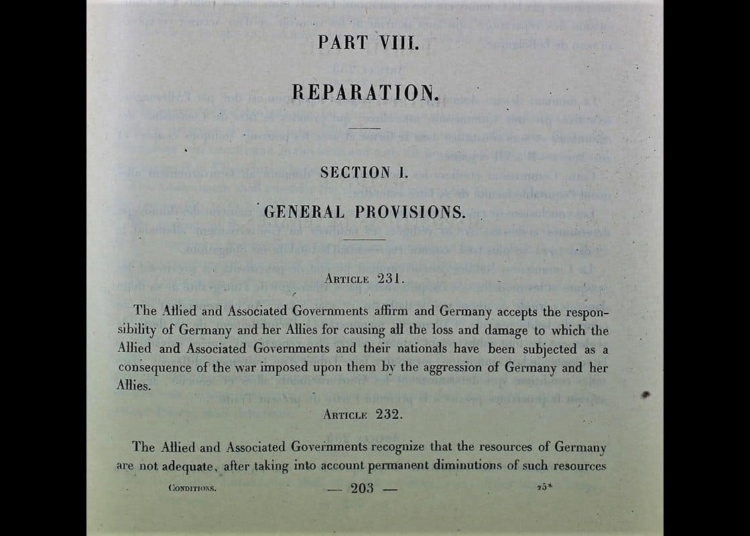The Treaty of Versailles, signed in 1919 to end World War I, aimed to bring peace, retribution, and stability to Europe. The treaty imposed harsh penalties on Germany, leading to economic hardships and political instability that ultimately contributed to the outbreak of World War II. Despite its intentions, the treaty failed to address underlying issues that caused the first war, such as nationalism and imperialism. The legacy of the Treaty of Versailles serves as a reminder of the importance of diplomacy and compromise in preventing future conflicts. Its impact on world history highlights the need for international cooperation and peace.
The Treaty of Versailles: Peace, Retribution, and Legacy of World War I
Introduction
The Treaty of Versailles was the peace treaty that ended World War I. Signed on June 28, 1919, in the Hall of Mirrors at the Palace of Versailles, the treaty was a complex document that aimed to achieve peace, retribution, and stability in the aftermath of the Great War. However, the treaty’s terms and consequences would have far-reaching implications that would shape the course of world history.
Peace
One of the primary goals of the Treaty of Versailles was to establish peace in Europe after the devastating conflict of World War I. The treaty sought to prevent future wars by reducing the military capabilities of the defeated powers and establishing a new international organization, the League of Nations, to promote diplomacy and prevent aggression.
The treaty also aimed to redraw the map of Europe, creating new states and border changes to address the national aspirations of various ethnic groups and to weaken the defeated Central Powers. Germany, in particular, was heavily punished by the treaty, losing territory and being forced to accept responsibility for starting the war.
Retribution
In addition to seeking peace, the Treaty of Versailles was also a document of retribution. The victorious Allies sought to hold the defeated powers accountable for the damage caused by the war and to punish them for their role in starting the conflict.
Germany, as the main aggressor in the war, bore the brunt of the retribution in the form of territorial losses, military restrictions, and heavy reparations payments. The treaty also included war guilt clauses that forced Germany to accept sole responsibility for the war, a provision that would have profound psychological and political consequences for the German people.
Legacy
The Treaty of Versailles had a profound impact on the course of world history in the years that followed. While it achieved its immediate goal of ending World War I, the treaty’s harsh terms and punitive measures sowed the seeds of resentment and instability in Europe.
The economic hardships imposed on Germany by the treaty’s reparations payments contributed to the country’s financial crisis and political instability in the 1920s and 1930s. These conditions would ultimately pave the way for the rise of Adolf Hitler and the outbreak of World War II.
Furthermore, the Treaty of Versailles failed to address many of the underlying issues that had caused World War I, such as nationalism, imperialism, and militarism. The treaty’s shortcomings would create lingering tensions and unresolved conflicts that would eventually lead to another global conflagration.
Conclusion
In conclusion, the Treaty of Versailles was a pivotal document in the history of the 20th century. While it sought to achieve peace, retribution, and stability in the aftermath of World War I, the treaty’s harsh terms and unintended consequences would have far-reaching implications that shaped the course of world history.
Despite its shortcomings, the Treaty of Versailles remains a significant milestone in the quest for international cooperation and peace. Its legacy serves as a reminder of the importance of diplomacy, compromise, and understanding in preventing future conflicts and promoting a more peaceful world.













